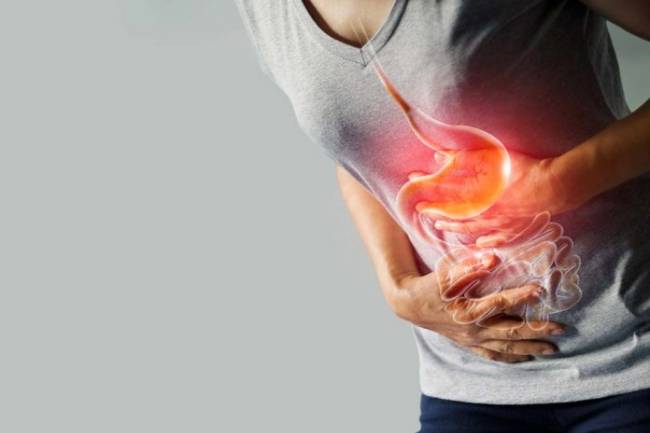Covid-19 Clinical Care: Acute Gastrointestinal Injury Occurs In Almost 86 Percent Of Critical Condition Covid-19 Patients, Often Leading To Sepsis And Death
Source: Covid-19 Clinical Care Mar 30, 2020 5 years, 10 months, 4 days, 17 hours, 42 minutes ago
Covid-19 Clinical Care: A new study conducted by medical researchers from Nanjing Medical University involving three hospitals and more than 1314 Covid-19 patients of which the focus was on 83 critically ill patients revealed that almost 86 percent or more of these critically ill patients suffered from acute gastrointestinal injury (AGI) .

This observed phenomenon indicated that SARS-CoV-2 was more virulent than SARS-CoV, and gastrointestinal tract was also a vital target organ of the virus.
However, the underlying mechanisms of SARS-CoV-2 causing organs dysfunction were unknown yet. Gastrointestinal injury was often caused by an inflammatory reaction, infection or sepsis, severe trauma, shock, pancreatitis, and other critical diseases.
The pre-print none peer-reviewed study by conducted a team of medical researchers lead by Dr Jia-Kui Sun.
https://www.medrxiv.org/content/10.1101/2020.03.25.20043570v1.full.pdf+html
As the receptor for SARS-CoV, angiotensin-converting enzyme 2 (ACE2) was suggested to be also the receptor for SARS-CoV-2 . ACE2 was expressed in endothelial cells and smooth muscle cells of almost all organs, especially in lung alveolar cells. That's why the COVID-19 patients were susceptible to ARDS (Acute Respiratory Disease syndrome) and even MODS.
The study findings also showed that ARDS incidence was very high (92.8%), and AGI grades were significantly positive correlated.
It was also reported that ACE2 was highly expressed in small intestine, especially in proximal and distal enterocytes. ACE2 expression in the epithelial cells was required for maintaining antimicrobial peptide expression, amino acid homeostasis, and the ecology of gut microbiome in the intestine.
Often it was seen that patients in the higher stages of acute gastrointestinal injury often developed sepsis that lead to also organ failure and ultimately death.
The clinical symptoms associated the early manifestations of AGI should be taken seriously in clinical treatment.
Doctors and healthcare professionals should pay attention to the signs of a start of gastrointestinal issues in Covid-19 patients.
For more on
Covid-19 Clinical Care, keep on logging to
Thailand Medical News.
Please help support our site and our initiatives to propel and aid research by making a donation to help sustain the site. Donations are accepted via paypal: https://www.thailandmedical.news/p/sponsorship
To date, materials on our site are helping healthcare professionals especially those from poorer countries and also medical researchers worldwide.
Additional References:
-Zhu N, Zhang D, Wang W, et al: China Novel Coronavirus Investigating and Research Team. A Novel Coronavirus fro
m Patients with Pneumonia in China, 2019. N Engl J Med 2020;382:727-733.
- Wang D, Hu B, Hu C, et al: Clinical Characteristics of 138 Hospitalized Patients With 2019 Novel Coronavirus-Infected Pneumonia in Wuhan, China. JAMA 2020 Feb 7. doi: 10.1001/jama.2020.1585.
-Li Q, Guan X, Wu P, et al: Early Transmission Dynamics in Wuhan, China, of Novel Coronavirus-Infected Pneumonia. N Engl J Med 2020 Jan 29. doi: 10.1056/NEJMoa2001316
-Xu XW, Wu XX, Jiang XG, et al: Clinical findings in a group of patients infected with the 2019 novel coronavirus (SARS-Cov-2) outside of Wuhan, China: retrospective case series. BMJ 2020; 368:m606.
-Guan WJ, Ni ZY, Hu Y, et al: Clinical Characteristics of Coronavirus Disease 2019 in China. N Engl J Med 2020 Feb 28. doi: 10.1056/NEJMoa2002032. 8. Huang C, Wang Y, Li X, et al: Clinical features of patients infected with 2019 novel coronavirus in Wuhan, China. Lancet 2020;395(10223):497-506.
-Yang X, Yu Y, Xu J, et al: Clinical course and outcomes of critically ill patients with SARS-CoV-2 pneumonia in Wuhan, China: a single-centered, retrospective, observational study. Lancet Respir Med 2020 Feb 24. pii: S2213-2600(20)30079-5.
-Reintam Blaser A, Malbrain ML, Starkopf J, et al: Gastrointestinal function in intensive care patients: terminology, definitions and management. Recommendations of the ESICM Working Group on Abdominal Problems. Intensive Care Med 2012;38(3):384-394.
-Rhodes A, Evans LE, Alhazzani W, et al: Surviving Sepsis Campaign: International Guidelines for Management of Sepsis and Septic Shock: 2016. Crit Care Med 2017;45(3):486-552.
-ARDS Definition Task Force, Ranieri VM, Rubenfeld GD, et al: Acute respiratory distress syndrome: the Berlin Definition. JAMA 2012;307(23):2526-2533.
- Zhang D, Li Y, Ding L, et al: Prevalence and outcome of acute gastrointestinal injury in critically ill patients: A systematic review and meta-analysis. doi: https://doi.org/10.1101/2020.03.25.20043570.
-Hu B, Sun R, Wu A, et al: Severity of acute gastrointestinal injury grade is a predictor of all-cause mortality in critically ill patients: a multicenter, prospective, observational study. Crit Care 2017;21(1):188.
-Li H, Zhang D, Wang Y, et al: Association between acute gastrointestinal injury grading system and disease severity and prognosis in critically ill patients: A multicenter, prospective, observational study in China. J Crit Care 2016;36:24-28.
-Chan JF, Kok KH, Zhu Z, et al: Genomic characterization of the 2019 novel human-pathogenic coronavirus isolated from a patient with atypical pneumonia after visiting Wuhan. Emerg Microbes Infect 2020;9(1):221-236.
-Liang W, Feng Z, Rao S, et al: Diarrhoea may be underestimated: a missing link in 2019 novel coronavirus. Gut 2020 Feb 26. pii: gutjnl-2020-320832.
-Hashimoto T, Perlot T, Rehman A, et al: ACE2 links amino acid malnutrition to microbial ecology and intestinal inflammation. Nature 2012;487(7408):477-481.
-Zhou F, Yu T, Du R, et al: Clinical course and risk factors for mortality of adult inpatients with COVID-19 in Wuhan, China: a retrospective cohort study. Lancet 2020 Mar 11. pii: S01
